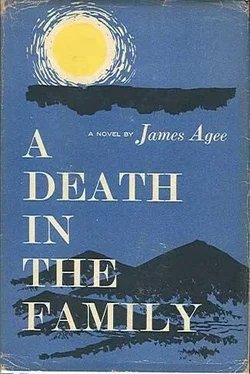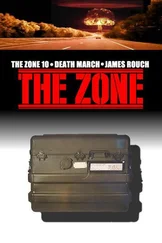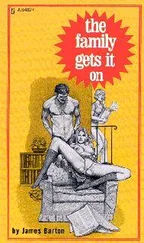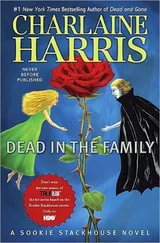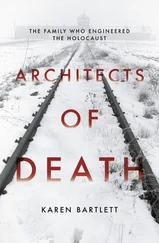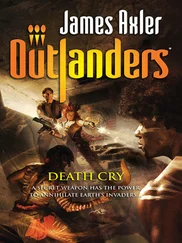"Why?" asked the boy who had just come up.
"Cause it's his daddy," one of them explained.
"It's my daddy," Rufus said.
"What happened?" asked still another boy, at the fringe of the group.
"My daddy got killed," Rufus said.
"His daddy got killed," several of the others explained.
"My daddy says he bets he was drunk."
"Good ole whiskey!"
"Shut up, what's your daddy know about it."
"Was he drunk?"
"No," Rufus said.
"No," two others said.
"Let him tell it."
"Yeah, you tell it."
"Anybody here ought to know, it's him."
"Come on and tell us."
"Good ole whiskey."
"Shut your mouth."
"Well come on and tell us, then."
They became silent and all of them looked at him. Rufus looked back into their eyes in the sudden deep stillness. A man walked by, stepping into the gutter to skirt them.
Rufus said, quietly, "He was coming home from Grampa's last night, Grampa Follet. He's very sick and Daddy had to go up way in the middle of the night to see him, and he was hurrying as fast as he could to get back home because he was so late. And there was a cotter pin worked loose."
"What's a cotter pin?"
"Shut up."
"A cotter pin is what holds things together underneath, that you steer with. It worked loose and fell out so that when one of the front wheels hit a loose rock it wrenched the wheel and he couldn't steer and the auto ran down off the road with an awful bump and they saw where the wheel you steer with hit him right on the chin and he was instantly killed. He was thrown all the way out of the auto and it ran up an eight-foot emb-embackment and then it rolled back down and it was upside down beside him when they found him. There was not a mark on his body. Only a little tiny blue mark right on the end of the chin and another on his lip."
In the silence he could see the auto upside down with its wheels in the air and his father lying beside it with the little blue marks on his chin and on his lip.
"Heck," one of them said, "how can that kill anybody?"
He felt a kind of sullen stirring among the others, and he felt that he was not believed, or that they did not think very well of his father for being killed so easily.
"It was just exactly the way it just happened to hit him, Uncle Andrew says. He says it was just a chance in a million. It gave him a concush, con, concush-it did something to his brain that killed him."
"Just a chance in a million," one of the older boys said gravely, and another gravely nodded.
"A million trillion," another said.
"Knocked him crazy as a loon," another cried, and with a waggling forefinger he made a rapid blubbery noise against his loose lower lip.
"Shut yer Goddamn mouth," an older boy said coldly. "Ain't you got no sense at all?"
"Way I heard it, ole Tin Lizzie just rolled right back on top of him whomp."
This account of it was false, Rufus was sure, but it seemed to him more exciting than his own, and more creditable to his father and to him, and nobody could question, scornfully, whether that could kill, as they could of just a blow on the chin; so he didn't try to contradict. He felt that he was lying, and in some way being disloyal as well, but he said only, "He was instantly killed. He didn't have to feel any pain."
"Never even knowed what hit him," a boy said quietly. "That's what my dad says."
"No," Rufus said. It had not occurred to him that way. "I guess he didn't." Never even knowed what hit him. Knew.
"Reckon that ole Tin Lizzie is done for now. Huh?"
He wondered if there was some meanness behind calling it an old Tin Lizzie. "I guess so," he said.
"Good ole waggin, but she done broke down."
His father sang that.
"No more joy rides in that ole Tin Lizzie, huh Rufus?"
"I guess not," Rufus replied shyly.
He began to realize that for some moments now a bell, the school bell, had been weltering on the dark gray air; he realized it because at this moment the last of its reverberations were fading.
"Last bell," one of the boys said in sudden alarm.
"Come on, we're goana git hell," another said; and within another second Rufus was watching them all run dwindling away up the street, and around the corner into Highland Avenue, as fast as they could go, and all round him the morning was empty and still. He stood still and watched the corner for almost half a minute after the fattest of them, and then the smallest, had disappeared; then he walked slowly back along the alley, hearing once more the sober crumbling of the cinders under each step, and up through the narrow side yard between the houses, and up the steps of the front porch.
In the paper! He looked for it beside the door, but it was not there. He listened carefully, but he could not bear anything. He let himself quietly through the front door, at the moment his Aunt Hannah came from the sitting room into the front hall. She wore a cloth over her hair and in her hands she was carrying the smoking stand. She did not see him at first and he saw how fierce and lonely her face looked. He tried to make himself small but just then she wheeled on him, her lenses flashing, and exclaimed, "Rufus Follet, where on earth have you been!" His stomach quailed, for her voice was so angry it was as if it were crackling with sparks.
"Outdoors."
"Where, outdoors! I've been looking for you all over the place."
"Just out. Back in the alley."
"Didn't you hear me calling you?"
He shook his head.
"I shouted until my voice was hoarse."
He kept shaking his head. "Honest," he said.
"Now listen to me carefully. You mustn't go outdoors today. Stay right here inside this house, do you understand?"
He nodded. He felt suddenly that he had done an awful thing.
"I know it's hard to," she said more gently, "but you've got to. Help Catherine with her coloring. Read a book. You promise?"
"Yes'm."
"And don't do anything to disturb your mother."
"No'm."
She went on down the hall and he watched her. What was she doing with the pipes and the ash trays, he wondered. He considered sneaking behind her, for he knew that she could not see at all well, yet he would be sure to get caught, for her hearing was very sharp. All the same, he sneaked along to the back of the hall and watched her empty the ashes into the garbage pail and rap out the pipes against its rim. Then she stood with the pipes in her hand, looking around uncertainly; finally she put the pipes and the ash tray on the cupboard shelf, and set the smoking stand in the corner of the kitchen behind the stove. He went back along the hall on tiptoe and into the sitting room.
Catherine sat in the little chair by the side window with a picture book on her knees. Her crayons were all over the window sill and she was working intently with an orange crayon. She looked up when he came in and looked down again and kept on working.
He did not want to help her, be wanted to be my himself and see if he could find the paper with the names in it, but he felt that he ought to try to be good, for by now he felt a dark uneasiness about something, he was not quite sure what, that he had done. He walked over to her. "I'll help you," he said.
"No," Catherine said, without even looking up. It was the Mother Goose book and with her orange crayon she was scrawling all over the cow which jumped over the moon, inside and outside the lines of the cow.
"Aunt Hannah says to," he said, disgusted to see what she was doing to the cow.
"No," Catherine said, and again she did not look up or stop scrawling for a second.
"That ain't no color for a cow," he said. "Whoever saw an orange cow?" She made no reply, but he could see that her face was getting red. "Besides, you're not even coloring inside the cow," he said. "Just look at that. You're just running that crayon around all over the place and it isn't even the right color." She bore down even harder and harder with the crayon and pushed it in a wider and wider tangle of lines and all of a sudden it snapped and the long part rolled to the floor. "See now, you busted it," Rufus said.
Читать дальше
